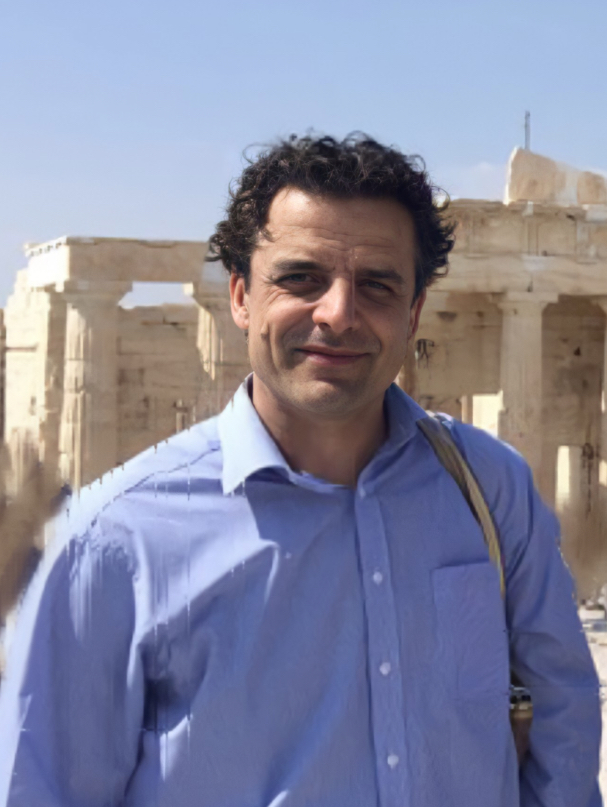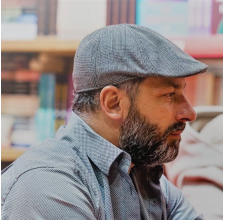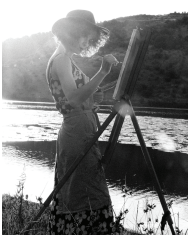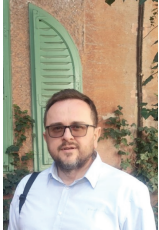Naz Feka (1972) has been involved for many years in EU and other international organisations developmental projects in Albania. He is also a lecturer on the subjects of International Relations in the University of Tirana and Albanian University in Tirana. He holds an MA from the Metropolitan University in the UK and has done doctoral studies at the University of Bristol in the UK. Recent publications include a co-edited chapter on Albania and its path to decentralized democratic governance in Local elections and voting in Europe, by Routledge (in printing).
The concept of ‘European integration’ is undoubtedly one of the most topical in Albanian public discourse for the last thirty years. The average external observer will have an opinion about this issue, which is likely to lead to these obvious conclusions: that integration has penetrated very deeply into the psyche of the Albanian citizen; that integration is the ‘mother’ of all issues permeating the discourse of the Albanian polis; that, given this status, integration has not left enough space or room to debate other topics relevant to the country; and, in addition, every other issue, regardless of how peripheral, is now connected to integration (with or without reason, this is yet another topic); and that integration is existential for the nation, to the extent that every issue of primary importance to Albanian society and the state, is viewed from the perpective of its relationship to integration. The latter goes so far that even initiatives that are a top priority, whether an idea or action, are conditioned by the influence of integration, or how integration will be influenced by the initiative.
Therefore, considering the role of the integration process in Albanian society, and, respectively, the position of Albania on its journey towards the EU, several innocent questions can be posed, two of which differ in significance and weight. First, what is real here, amongst all that is happening? The fact that the integration process, as it turns out, is extremely complex, or that, on the journey, everything that feeds into this process becomes complicated? So, is this just a natural and inevitable process that must be experienced if we want to reach the final goal, i.e., EU integration. And, to conclude the first question, is this a common situation for an EU candidate country? The second question relates to the success of the journey or the integration process, i.e., the achievement of the objective. Obviously, each journey is, in the end, a multi-stage process that leads to a certain goal. However, given the progress of the integration process so far, can an ordinary observer be forgiven if she or he concludes (somewhat pessimistically) that this entire process has produced a situation where, to talk in extremes, everything seems surreal? That is, does the Albanian context resemble a situation where the citizen is so fed up with the idea of integration that the experience on the EU journey has become surreal.
These questions make sense if viewed a few years later. With the recognition of candidate status in 2014, there were many voices emerging from all four corners of the Albanian political (and apolitical) world, arguing that the opening of talks would be imminent, and that there was just one major condition, (by comparison with the small conditions that it was understood would not be an obstacle), and that was the adoption of justice reform. Yet, here we are, five years after the adoption of the justice reform and Albania is still looking, (though not expecting), a green light to move to the next stage in the integration process – the opening of negotiations.
To analyse further the above questions, as simply as possible, we can take as a parenthesis the long period, almost three decades, of Albania’s integration process (or even longer, depending on the interpretation). If we trace the origin of the expression (at least rhetorically) of the willingness of the Albanian state and government to integrate into the EU, then this takes us back to 1992, the year, when Albania broke away from communism and became oriented towards the development of a democratic political system. Along with this break, political and apolitical Albania made it clear that it was ‘ready’ and ‘willing’ to become part of Europe, and how better to do this than to embrace the European Union. Or, if we want to take a bureaucratic and ‘official’ perspective, then the period of Albania’s integration into the EU began with the Stabilization and Association Process in 1999 and, this was further confirmed with the conclusions of the EU Summit in Thessaloniki, in 2003, which is about two decades ago now. So, hypothetically, whichever period we consider – two or three decades – there is firm agreement that this is an extremely long period of time (at least according to public opinion and various studies on this topic over the years). So, to start with, there is a consensus that the debate may revolve around whether this period is long, or extremely long, but not whether this period is long, or short.
To answer the above questions, it must be noted that the process of European integration should be analysed at several levels: political, economic, social, technocratic, etc. And, as such, it can easily become an extremely complex process. And this is very true: the EU is recognized as one of the most complex political organizations in the world. This is primarily due to the highly technocratic nature of the organization and the way the EU operates. And it is precisely this technocratic aspect that seems to dominate the integration process for the EU candidate country relationship. But it would not be fair if the complexity of the EU is viewed only from a technocratic perspective. Let us consider other aspects, such as the political. To get the green light, a candidate country must receive the ‘blessing’ of each EU member state, which makes the EU extremely political. To illustrate how important politics is, consider the case of the threat of a veto, or use of it, as is the case between Slovenia and Croatia, Bulgaria against Macedonia, and, hypothetically, in Greece-Albania, or Croatia-Serbia relations. So, in this sense, the EU is political, and when we say political, this connects to many other aspects, such as the cultural (e.g., use of Bulgaria’s veto on opening negotiations with Northern Macedonia this year), social (e.g., large development gap within Romania), economic (insufficient economic development causes emigration to rich countries), etc. Thus, so far, we have argued that the integration process, in fact, is (over) burdened technocratically, as well as politically, and economically, etc. And it is precisely this (over) burden that leads us to hypothesize that Albania has a reasonably difficult path to the EU, thanks, to a large extent, to the complexity that stems from, and consequently, is dictated by the other side, the EU.
But this is only one side of the coin; in the case of Albania, we have another aspect that we may tend to neutralize, or often, completely ignore, and this is state building. In other words, in parallel to the integration process, Albania has entered the state-building process. Of course, for many this is ironic, given that the Albanian state has existed for 109 years. But if we take the 30-year period since the fall of communism, and analyze it through the prism of the integration process, without introducing other perspectives, we inevitably conclude that Albania has made significant progress, but that there is still a lot of work to be done, if we want to join the European Union. This is a typical concluding sentence, repeated in a uniform manner by the EU in relation to Albania. In other words, progress has been made, but not enough to have the honor of joining the EU. Again, the natural question is: Why?
Apparently, Albania as a country, continues to manifest symptoms that damage in all respects that creation, which in the political sense, is called a state. In the narrow (and classical) sense, Albania has had, and continues to have, a clearly defined and known population and territory (although there is room for interpretation). But we must try to escape this narrow interpretation and take a broader view to recognise that in all other aspects, be it economic, social, cultural, etc., Albania is far away (maybe a little, maybe a lot) from the concept of the ‘modern state’ (or of the times) necessary to join the EU. This is not suprising when one considers that the EU is recognized as the most advanced economic, social, and cultural club in the world today. And it is precisely this club that Albania intends to join.
If we return to the credentials of the Albanian state, then it can be easily stated that Albania began the path to integration with a very weak economy, (the 1990s were known as the years of donations and aid from other countries), with a severe loss of population, with almost half of the population emigrating (in the vast majority, the working population), and with numerous problems inherited from the monist system, such as the issue of property (which, in addition to the economic cost which affects societal development, has a serious social dimension – over 8,000 people have been killed in property disputes from 1992 up to the present day)*. In addition to the psychological and social impacts, there has been great inequality in the distribution of material goods in society since the 1990s, linked to property, emigration, lack of a developed political culture, mass movements of the population within the country, corruption, and huge misgovernment. The list could go on and on, but these are some of the key issues that have played a major (if not the major) role in causing a huge setback, the primary result of which is complexity. This is not to say that complexity per se is negative. Not at all! Complexity can be progressive (something that is complex, but where everything has its place, meaning there is a sequence of things, and perhaps most important, it is predictable). Or complexity can be regressive – where everything, if not incomplete, is distorted, misguided, malicious, and, perhaps most importantly, involuntary. For example, in this sense, we can say that the property question, which is reported every year as a priority in the European Commission Progress Report for Albania, is complex. Because clearly property is directly related to human rights, economic development, social development, and rule of law, etc. And all these issues are part of the basic criteria (the so-called Copenhagen Criteria) for EU membership. Or, for example, how can we say that justice reform is successful if we have tried for 5 years to implement it, and during that time, the political class, without exception, has tried to undermine and exploit it for the interests of their own camp. This, of course, leads to the answer that issues such as property or justice reform, despite being adopted (which is another topic), still lack the support necessary to fully address, resolve and implement these issues.
The concept of complexity can also be seen in parallel from the perspective of the state, as a political unit: how complex is it to build and maintain a state? Seen from this perspective, making and building a state is just as complex as it is easy. For example, if we take the case of Kosovo, the making and building of the state turns out to be a truly complex enterprise when compared to the making and building of states such as Slovenia or Northern Macedonia (which historically were not states until after the fall of Yugoslavia). In the case of Kosovo, the strategic mistakes made by previous governments have greatly complicated the work of statebuilding in Kosovo, in its current phase. Thus, in this case, we are dealing with negative complexity, to the extent that it badly compromises a state’s efforts to achieve general welfare, and EU integration.
This necessarily leads us to the conclusion that EU integration is indeed complex in nature, but the degree of complexity depends largely on the response and will of the other party – the candidate country. If the aspiring state, in this case Albania, has above all the will to neutralize this complexity, in the first place, it is easier to neutralize all the barriers or challenges that arise in the integration process. Clearly, these challenges or barriers are very significant for Albania, given the various aspects that are specific to the Albanian context, as briefly described above. And although the integration process itself has no challenges or barriers, as a process, comprising (amongst other elements) all the components of state-building, it is a challenge. And, if this has not been properly understood yet by the Albanian political class, it will be difficult for this journey to succeed. Thousands of documents, studies, and analyses have been written and developed, endless conferences and meetings have been held, billions of euros spent, and yet we still have challenges ahead. This is because we may have failed to understand that statebuilding is a process that, done well, with goodwill and diplomacy (in this case, understood as wisdom), creates well-being for citizens, and can bring us other benefits, for example, integration into the European Union.
* Although property disputes are reported almost daily in the news bulletins in Albania, there is no accurate (!) data from the Ministry of Interior on the exact number of victims in property disputes. The above number is quoted from a statement by the organisation, “Ownership with justice”, available at this website: https://www.avokatipopullit.gov.al/media/manager/website/reports/Raporti%20i%20vecante_e%20drejta%20e%20prones.pdf
Translated by Alexandra Channer







